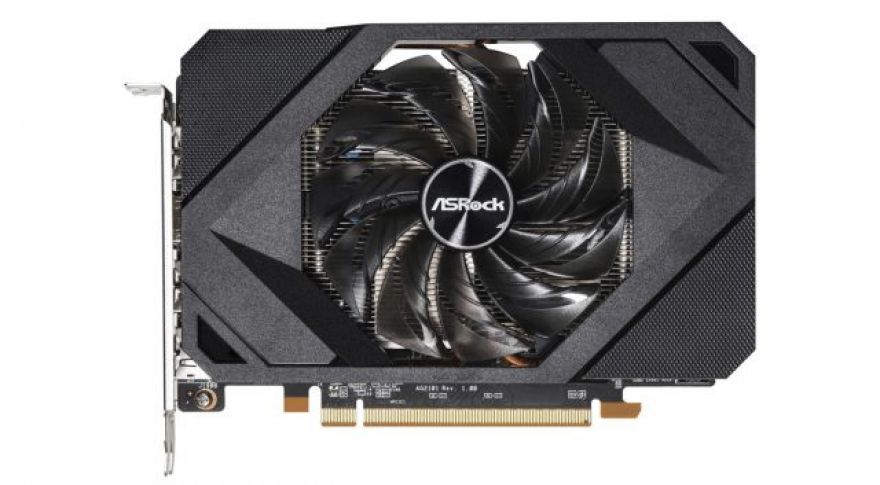
The Radeon RX 6600 is AMD’s Weakest RDNA2 GPU Yet
AMD has launched its RDNA2-powered Radeon 6600 and taken the crown as the least-attractive GPU since Ampere kicked off the most recent product update cycle just over a year ago. That’s the overall opinion of the various publications that have spent time with the card. These lower-end versions of RDNA2 may be more affordable and at least slightly easier to find than the 6700 XT and 6800 XT, but they’re less attractive at MSRP, and even more unattractive at the stratospheric prices in the GPU market right now.
At $329, the RX 6600 is ~14 percent less expensive than the .
Image and data by
The one big improvement the 6600 offers over the 6600 XT is in power consumption, where the total board power is 132W compared to 160W for AMD’s larger Navi 23 chip. This is substantially less than the 170W specified by the comparable RTX 3060, and that’s enough to give AMD some impressive power consumption wins over that GPU.
Image and data by
AMD has effectively recaptured the power efficiency crown from Nvidia, at least at this price point. It’s worth noting that achievement because AMD has struggled with power efficiency against Nvidia for at least the past eight years. If what you care about is power efficiency, the Radeon RX 6600 deserves some accolades. But as the spec sheet shows, it achieves some of these improvements by offering less RAM and a smaller memory bus. The onboard Infinity Cache is intended to compensate for the smaller memory bus, but while this works quite well for the 6700 XT and above, the 6600 XT proved to be less well balanced. Performance reports indicate the RX 6600 has problems as well:
The problem with the Radeon RX 6600 is that it doesn’t stand up particularly well to Nvidia’s RTX 3060. At 1080p, the gap between Nvidia and AMD is limited to a few frames per second, with TechSpot measuring the RTX 3060 at 115 fps in their 12 game average, while the RX 6600 scores 111 fps. As resolution rises and/or features like ray tracing are turned on, that gap widens. tests show that the Radeon 6600 takes an absolute beating with ray tracing enabled, with the RTX 3060 “anywhere from 43 – 69 percent faster.”
As we discussed in our review of the , testing suggests Navi 23 is hampered by limited memory bandwidth. Bandwidth limitations become acute when one cranks up resolution and ray tracing at the same time, and the GPU’s performance suffers for it. The RX 6600’s low power consumption is its strongest selling point, and that’s only going to appeal to a relatively limited buying segment.
At the end of the day, the discussion over whether or nor the RX 6600 is a good value also has to take into account the actual state of the GPU market today. The Radeon RX 6600 is a good value at its $329 MSRP, but GPUs are not available at MSRP, and anything selling for list price should be leapt upon. Recommendations for this GPU, however, are not exactly glowing.
“Sure, in a normal market there’s no denying that this product would suck. $330 would be a bad joke,” Techspot writes, “But as it stands today, the RX 6600 could be the most affordable current-gen graphics card you can buy, so there’s that.”
PCMag on recommending the RX 6600 until AMD “pushes a more competitive driver set.” Eurogamer calls it a “hard sell.” PC Gamer “the Radeon RX 6600 might not be the graphics card you necessarily want, but the one that offers a fine alternative at a cheaper price.”
We saw signs of this problem before the 6600 XT launched and it’s popped up again with the RX 6600: AMD, in our opinion, made a mistake when it specced the 6600 XT and RX 6600. These GPUs are not particularly competitive against Nvidia and they don’t do much to further the narrative that AMD represents a better value than Nvidia.
It’s fair to ask whether it makes sense for AMD to launch an aggressively positioned part right now. All evidence suggests the company is allocating a relatively small portion of its wafer purchases to building discrete GPUs. Any well-priced GPU it launches is likely to be snatched up by cryptocurrency miners. There’s not a lot of practical value in launching cards at MSRPs most people won’t pay.
But launching GPUs with less attractive price/performance figures doesn’t necessarily fix this problem. AMD will undoubtedly sell every Radeon RX 6600 it manufactures. The one thing it isn’t manufacturing is the perception that RDNA2 offers a better gaming value than Ampere. Excellent power consumption can’t entirely compensate for this GPU’s weak spots and the card would fare much worse if the GPU market was anything less than bad right now.
Anyone who can afford to wait a bit longer to buy a GPU will be better served by doing so. Anyone who can’t afford to wait may find they still prefer a more expensive card rather than buying a GPU with such narrow capabilities in 2021.
Now Read: